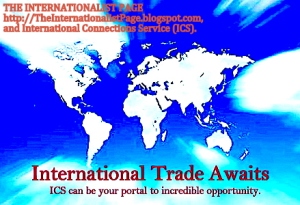 | |
| DON'T BE DECEIVED BY THE INAPPROPRIATELY HUMOROUS IMAGE. CLICK ON IMAGE FOR HIGHER RESOLUTION! |
China, following the lead of the United States (predominantly as the US was conducting itself during the period between 1990 and 2004), is increasing its investments in Israeli companies, technologies. China's increased presence in Israel is also acting to facilitate increased joint ventures and cooperative activities.
This economic and sociological phenomenon is also creating a curious demographic: More Chinese companies are being incorporated or re-domiciled in Israel, and Israeli companies are setting up shop in China as well. Not an increased number of Chinese are calling Israel home, and an increasing number of Israelis are re-locating to China.
A recent article in SmartPlanet written by Charlie Osborn (January 2, 2013) discusses the China-Israel connection and the reasons for the strengthening ties between the two powers, economies and peoples:
Chinese firms eye Israeli technology
Following the United States’ lead, major Chinese firms are looking for investment opportunities in Israel.The U.S. has invested in businesses located in the region for years, and now the Chinese are taking advantage of Israel’s commercial technology and research, according to Reuters. Last month, a troupe of Chinese business officials visited the region — still affected by the battle in Gaza — in order to further explore potential ventures.
Led by chairman of investment holding firm Hang Lung Group, Ronnie Chan, and including delegates from Lenovo, COFCO and the Chinese branch of JP Morgan Chase, the group is considering the option of investing further in Israel, which has seen Chinese funding reaching approximately $3 billion to date.
Chan told the news agency:
“The sky is the limit. Some companies can set up research and development centers here, some can bring Israeli companies to China, some can open up the Chinese market for Israeli companies. I have no idea where this will lead.”According to Israel’s Foreign Ministry, bilateral trade between the two countries reached $8 billion in 2011. The largest singular Chinese investment within an Israeli venture to date was the 60 percent acquisition of crop production chemical maker MA Industries by ChemChina for $1.4 billion.
Edouard Cukierman, organiser of the trip and managing partner of private equity funds Catalyst Investments, said that the visit could lead to more acquisitions and potential funding for projects in research. Cukierman noted:
“We are following up with each one of them, preparing specific action plans for each one of them. They believe they can benefit from innovation in Israel more than the Americans did.”####
While these bits of information (some anecdotal and some factual and verified) regarding Israel are not generally well-known to most of the western industrialized nations, or even acknowledged, they may well explain some of the magnetism which attracts the Chinese to Israel:
1) Israel is one of the world's top 10 inventors and producers of multi-industry technologies;
2) Israel probably has more of its companies traded on public exchanges and bourses throughout the world (as well as within Israel) than any other nation;
3) Israeli companies tend to be capitalized with minimal debt (very much in philosophical alignment with the way Chinese and other Asian companies grew throughout the 1990s), and principally with equity capital from stock sales and internally-generated earnings;
4) Israeli companies tend to become self-sustaining much earlier in their developmental cycle, and at a much smaller launch capitalization than US and other companies due to a combination of a powerful work ethic, more loyalty between employees and their employers, and very strict financial management.
5) Israel may quite possibly be the creator of some of the most advanced technologies in the world, especially regarding information processing, communications and applications, as well as in biotech, nanotechnologies, AI (Artificial Intelligence), data mining, managing and leveraging big data and a host of technologies relating to military intelligence and operations -- hopefully, many of these will ultimately come out of the black and enter the commercial sector for productive peacetime use.
Expect to hear increasingly about Israel's rapidly-solidifying trade partnership and strategic alliance with China. In certain ways, since the US economy is suffering and a big concern about the Chinese propensity of late toward aggressiveness and acquisitiveness, Israel is an ally (in many senses of this term to both nations as well as a trading partner to each). This is more likely than not a very good state of affairs for the United States. In understanding some of the basic tenets of Internationalism and diplomacy, when two countries are either at odds with each other or are not as friendly as they might otherwise be with each other, a mutual ally is a wonderful means of keeping an open door with respect to discussions and negotiations.
Thank you as always for reading me, re-tweeting me and sharing my articles with your colleagues and associates through re posting and linking on social media.
Douglas E. Castle
The Internationalist Page Blog
CFI - CrowdFunding Incubator Blog
CFI - CrowdFunding incubator Website







No comments:
Post a Comment